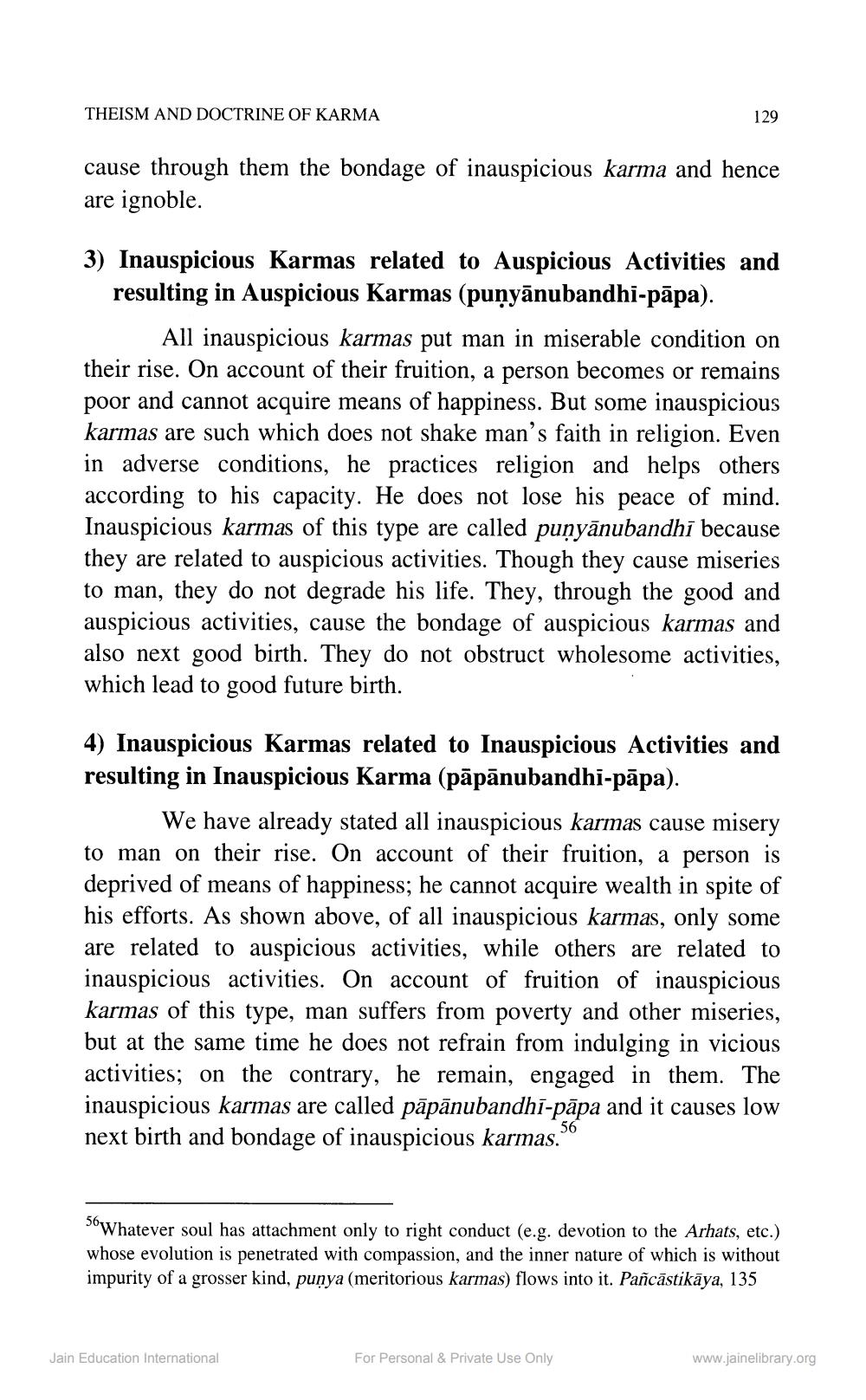________________
THEISM AND DOCTRINE OF KARMA
129
cause through them the bondage of inauspicious karma and hence are ignoble.
3) Inauspicious Karmas related to Auspicious Activities and resulting in Auspicious Karmas (punyānubandhi-pāpa).
All inauspicious karmas put man in miserable condition on their rise. On account of their fruition, a person becomes or remains poor and cannot acquire means of happiness. But some inauspicious karmas are such which does not shake man's faith in religion. Even in adverse conditions, he practices religion and helps others according to his capacity. He does not lose his peace of mind. Inauspicious karmas of this type are called punyānubandhī because they are related to auspicious activities. Though they cause miseries to man, they do not degrade his life. They, through the good and auspicious activities, cause the bondage of auspicious karmas and also next good birth. They do not obstruct wholesome activities, which lead to good future birth.
4) Inauspicious Karmas related to Inauspicious Activities and resulting in Inauspicious Karma (pāpānubandhi-pāpa).
We have already stated all inauspicious karmas cause misery to man on their rise. On account of their fruition, a person is deprived of means of happiness; he cannot acquire wealth in spite of his efforts. As shown above, of all inauspicious karmas, only some are related to auspicious activities, while others are related to inauspicious activities. On account of fruition of inauspicious karmas of this type, man suffers from poverty and other miseries, but at the same time he does not refrain from indulging in vicious activities; on the contrary, he remain, engaged in them. The inauspicious karmas are called pāpānubandhi-pāpa and it causes low next birth and bondage of inauspicious karmas.“
Whatever soul has attachment only to right conduct (e.g. devotion to the Arhats, etc.) whose evolution is penetrated with compassion, and the inner nature of which is without impurity of a grosser kind, punya (meritorious karmas) flows into it. Pañcāstikāya, 135
Jain Education International
For Personal & Private Use Only
www.jainelibrary.org




